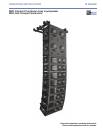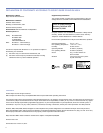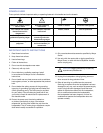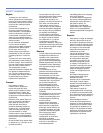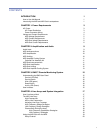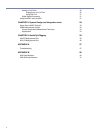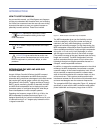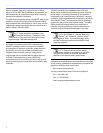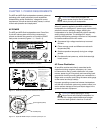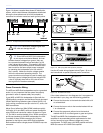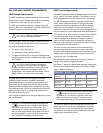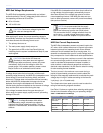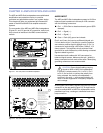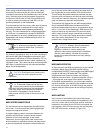
1
INTRODUCTION
HOW TO USE THIS MANUAL
As you read this manual, you’ll nd gures and diagrams
to help you understand and visualize what you’re reading.
You’ll also nd numerous icons that serve as cues to ag
important information or warn you against improper or
potentially harmful activities. These icons include:
A NOTE identies an important or useful
piece of information relating to the topic
under discussion.
A TIP offers a helpful tip relevant to the topic
at hand.
A CAUTION gives notice that an action can
have serious consequences and could cause
harm to equipment or personnel, delays, or other
problems.
INTRODUCING THE M2D AND M2D-SUB
LOUDSPEAKERS
As part of Meyer Sound’s M Series, the M2D compact
curvilinear array loudspeaker and M2D-Sub compact
subwoofer bring numerous advantages to mid-sized venues
that require tight vertical pattern control with long throw.
Self-powered, with QuickFly
®
rigging and Meyer Sound’s
RMS™ remote monitoring system as standard, the M2D
and M2D-Sub loudspeakers can be deployed as a self-
contained system or congured along with other Meyer
Sound loudspeakers in more complex systems.
Operating at a frequency range of 60 Hz to 16 kHz, the
M2D loudspeaker’s compact enclosure (Figure i.1) is
designed specically for vertical curvilinear arrays of up to
16 cabinets having 0- to 7-degree splay between units in
1-degree increments.
Figure i.1. M2D compact curvilinear array loudspeaker
The M2D loudspeaker gives you the exibility to tailor
vertical coverage by varying the number and splay of
cabinets in the array while maintaining a constant 90
degrees of horizontal coverage. For high frequencies, the
M2D loudspeaker utilizes Meyer Sound’s patented REM™
ribbon emulation manifold to couple a single compression
driver with a 1.5-inch exit (4-inch diaphragm) to a horn
with 90-degree constant-directivity horizontal coverage.
(The vertical coverage of the array depends upon the array
length and curvature). The M2D loudspeaker’s mid-low
section comprises two high-power 10-inch drivers with
lightweight neodymium magnet assemblies housed in a
compact, vented trapezoidal enclosure.
In addition, to assure the smoothest response in the critical
midrange, the M2D loudspeaker incorporates a complex
crossover design. At the lowest frequencies, both 10-inch
drivers combine to reproduce powerful, coherent bass,
while in the mid frequencies the crossover feeds only one
of the two drivers. This ingenious technique eliminates
interference between the drivers that would otherwise occur
at shorter wavelengths near the crossover frequencies.
The companion M2D-Sub subwoofer (Figure i.2), designed
specically to work with the M2D, extends overall system
power bandwidth and frequency range down to 28 Hz.
Figure i.2. M2D-Sub compact subwoofer
INTRODUCTION



